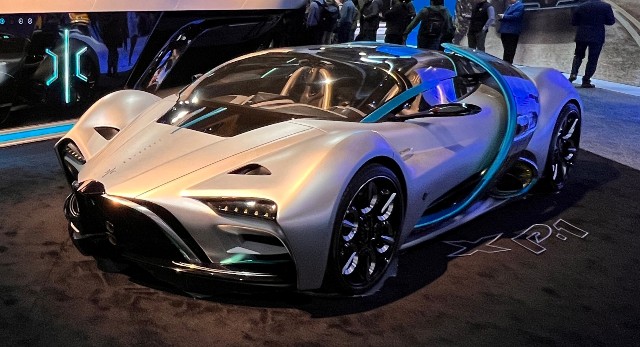
Hydrogen-Powered Hyperion XP-1 Makes Public Debut
The Hyperion XP-1 promises 1,016 miles (1,635 km) of range when the carbon-fiber hydrogen tanks are filled up, a process that takes less than five minutes. The powertrain includes hydrogen fuel cells, supercapacitors instead of batteries, a three-speed transmission, and four axial-flux electric motors sending power to all four wheels. The combined power output exceeds 2,000 hp allowing a 0-60 mph (0-100 km/h) acceleration in 2.2 seconds and a top speed of 221 mph (356 km/h).
According to Hyperion, the XP-1 tips the scales at 2,275 lbs (1,032 kg), which is significantly lower than most electric hypercars, thanks to the carbon titanium monocoque structure, the aluminum alloy suspension, the titanium-reinforced composite bodywork, and of course the absence of a massive battery pack. Hyperion wants to build 300 units of the XP-1 in the US, with pricing set to be announced at a later date.
Information Source: Read More “
Energy Monitors | Electric Power | Natural Gas | Oil | Climate | Renewable | Wind | Transition | LPG | Solar | Electric | Biomass | Sustainability | Oil Price | Electric Vehicles|Commodities | Shipping|

